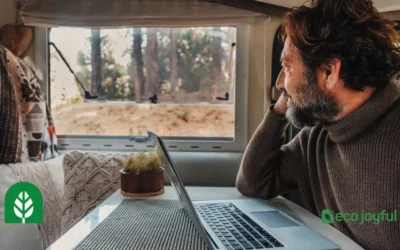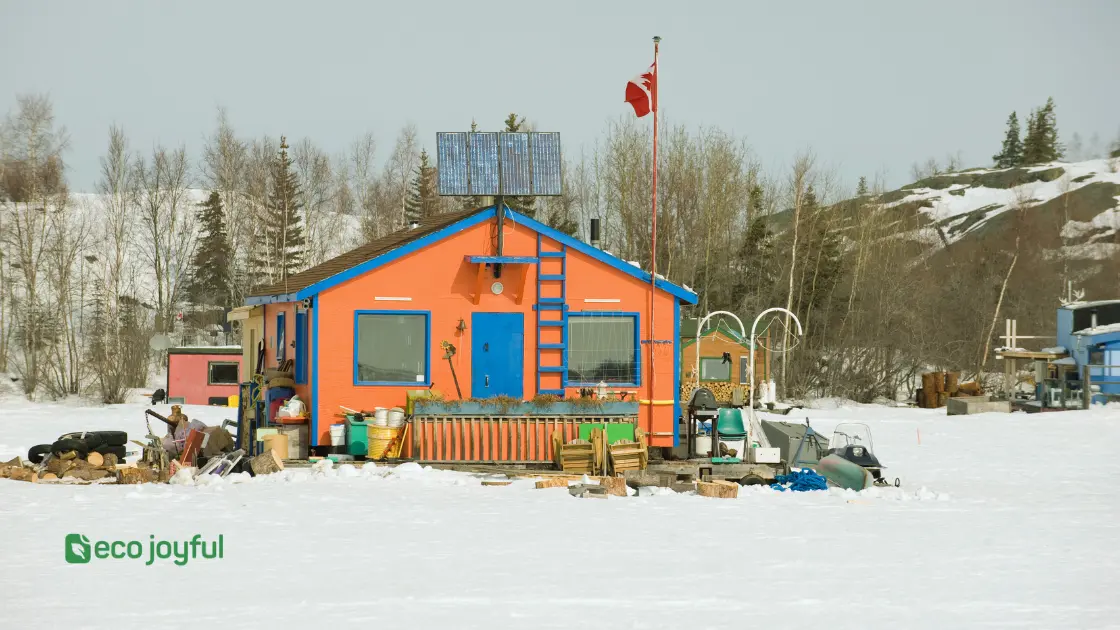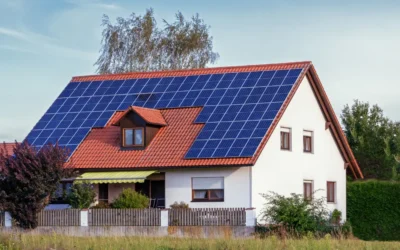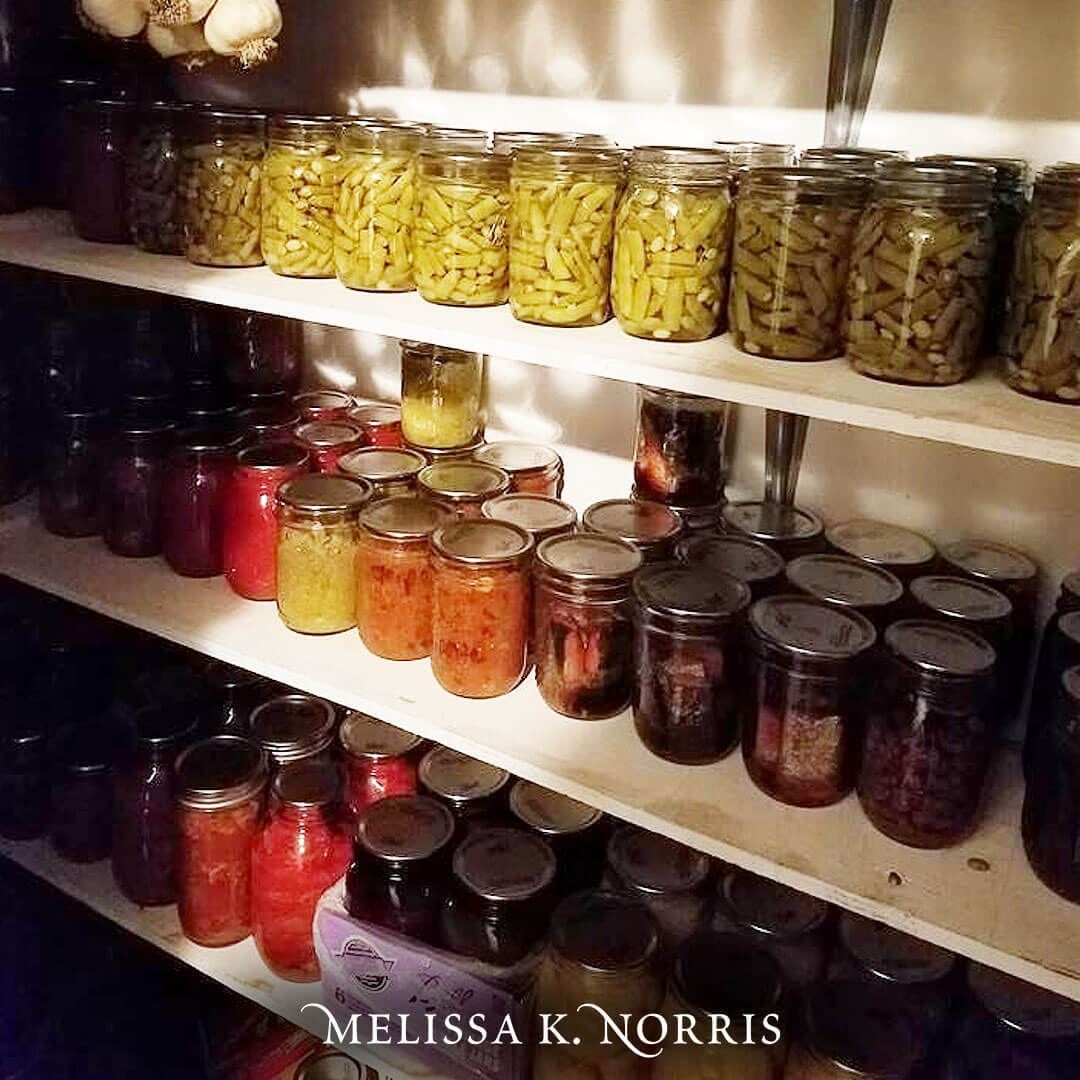I want to live off grid in a peaceful and remote location with access to natural resources. Living off the grid is an eco-friendly and sustainable way of life that many people are now embracing.
It involves creating and maintaining an independent lifestyle without relying on public utilities such as electricity, water, and gas. The decision to live off grid is often driven by a desire for freedom, self-reliance, and a simpler way of life.
For many, it is a chance to disconnect from the pressures of modern society and reconnect with nature. However, finding the right location to live off grid can be a challenging task. The ideal location should have plenty of natural resources such as wood, water, and fertile soil, as well as minimal interference from modern society. This article explores some of the best places to live off grid and offers tips for finding the perfect location.

Credit: www.pinterest.com
The Appeal Of Off Grid Living
Living off-grid has an undeniable appeal, especially for those seeking simplicity and self-sufficiency. Choosing where to live off-grid means considering factors such as climate, access to resources, and community support.
What Draws People To Off Grid Living
Living off the grid is no longer a fringe lifestyle choice. More and more people are yearning for a simpler, self-sustainable life away from the hustle and bustle of city living. It’s no wonder that off-grid living has become a popular trend in recent years.
People are often drawn to off-grid living for various reasons. The freedom and autonomy it provides, the opportunity to reduce their carbon footprint, the desire to live a self-sustainable lifestyle, and the ability to escape the stresses of modern living are just but a few reasons why people choose to live off-grid.
Benefits Of Living Off Grid
There are numerous benefits to living off-grid. Here are just a few:
- Self-sustainability: Living off the grid means you are self-sufficient, producing your electricity, food, water, and heat, which leads to very few bills or costs.
- Reduced Carbon Footprint: By living off the grid, you can reduce your environmental impact substantially. With sustainability being at the forefront of many peoples’ minds, reducing your carbon footprint is an important consideration.
- Nature and Freedom: The peace and tranquility found in living off the grid are undeniable. Living away from the chaos of modern life provides a serene environment free from a fast-paced lifestyle, city noises, and pollution.
- Minimalism: Living off the grid forces you to be selective with what you need, promoting minimalism, as you become increasingly adept at utilizing the resources you have.
- Self-Reliance: Off-gridders rely on themselves to meet their basic needs, promoting self-reliance, and a resilient individual mindset.
Living off-grid isn’t for everyone, but for those who crave a simple life, it offers an independent, sustainable, and peaceful existence. So, where do you want to live off-grid? The choice is yours, but the benefits of living off-grid are clear.
Factors To Consider When Choosing Your Off Grid Location
Choosing an off-grid location is an important decision that requires careful consideration. One of the most significant benefits of living off-grid is the ability to choose your own location – the place where you want to live. The location you choose will have a big impact on your quality of life, as well as your ability to live a sustainable and self-sufficient lifestyle. In this article, we will take a closer look at some of the factors you need to consider when choosing your off-grid location.
Climate And Geography
The climate and geography of your off-grid location play a critical role in your success. You’ll want to choose a location that has a suitable climate and offers the resources you need to live. For example, someone living off-grid in a forested area may need to have access to firewood, while someone in a desert location will have to rely on solar power. Consider the availability of natural resources such as water, firewood, and solar energy to make sure that you will be able to live comfortably and sustainably in your chosen location.
Access To Resources
Access to resources such as food, water, and fuel is crucial when living off-grid. You will need to source these resources yourself or buy them locally. It’s important to choose a location where you can find these resources easily or produce them on your own. For example, if you plan on growing your own food, you’ll want to make sure that the soil and climate are suitable for the crops you plan to grow.
Local Laws And Regulations
Before choosing an off-grid location, it’s essential to research local laws and regulations. Some areas have zoning laws that make it difficult (or even illegal) to live off the grid. Check local zoning regulations to make sure that you won’t run afoul of the law by living off the grid. If you plan on building your own home on your land, you will need to follow local building codes and permit requirements.
In conclusion, choosing an off-grid location requires careful consideration of many factors, including climate, geography, access to resources, and local laws and regulations. By taking the time to research these factors and choosing a location that meets your needs, you can live a fulfilling and sustainable off-grid lifestyle.
Popular Off Grid Locations
If you’re considering off grid living, there are several locations worth considering. Depending on your preferences and lifestyle, you might be drawn to mountain regions, deserts, or coastal areas. Each location has its unique perks, so it’s important to weigh your options before making a final decision.
Table of Contents
Mountain Regions
For those seeking solitude and stunning natural beauty, mountain regions are an ideal off grid location. Mountain living offers an escape from the hustle and bustle of city life and presents opportunities for outdoor recreation. Additionally, living off the grid in the mountains allows for self-sufficient living, with ample space for gardening and raising livestock. Some popular mountain off grid locations include:
- The Rockies in Colorado
- The Smoky Mountains in Tennessee
- The Sierra Nevadas in California
Deserts
Desert living presents unique challenges but also unparalleled opportunities for self-sufficient living. The dry climate and ample sunshine provide excellent conditions for solar and wind power, making it easy to live off the grid. Additionally, the isolation provides a sense of independence and peace. Some popular desert off grid locations include:
- The Sonoran Desert in Arizona
- The Mojave Desert in California
- The Chihuahuan Desert in New Mexico
Coastal Areas
Living off grid on or near the coast presents its own unique set of challenges and benefits. Coastal living offers stunning views and an abundance of marine life, seafood, and opportunities for beachcombing and other outdoor activities. However, harsh coastal weather conditions can make off grid living more challenging. Some popular coastal off grid locations include:
- The Olympic Peninsula in Washington
- The Maine Coast
- The Florida Keys

Credit: www.homestead.org
Preparing Your Off Grid Site
Selecting the perfect off-grid site is crucial. Before settling down, consider what type of lifestyle and surroundings you desire for your off-grid existence. The location and terrain can play a significant role in energy production and self-sufficiency.
Preparing Your Off Grid Site
When it comes to living off the grid, one of the most important aspects is the location. It is essential to find a suitable plot of land that can provide all the necessary resources. Once you have found the ideal location, it is time to start preparing the off-grid site.
Power and Water Considerations
One of the crucial things essential to living off the grid is to have a sustainable source of power and water. When it comes to power, it is essential to consider all the available options, such as solar, hydro, or wind. Each power source has different requirements, and you must assess which option is best for your situation.
Similarly, access to water is an essential need. You must assess if the location has a sustainable water source, such as a stream or well, or if you need to set up a rainwater harvesting system. It is important to ensure you have enough water for all your daily needs, such as drinking, cooking, and cleaning, throughout the year.
Building and Infrastructure
Once you have assessed the power and water needs, it is time to consider building and infrastructure. Building an off-grid home from scratch requires careful planning and execution.
You must consider all the vital aspects of your home’s infrastructure, such as heating, ventilation, and insulation. Additionally, constructing a sturdy and sustainable building that can withstand various weather conditions is vital for your safety and comfort.
Food Production
Living off the grid means being self-sufficient when it comes to food. You must assess the land’s potential for food production and plan accordingly. The location’s climate will determine the type of crops you can grow, and it is important to consider factors such as soil quality, water availability, and sunlight.
You may also consider options such as livestock or poultry farming to meet your protein needs. Proper planning and implementation of food production is essential for a successful off-grid lifestyle.
In Conclusion,
Preparing an off-grid site requires meticulous planning and execution. Ensuring a sustainable power and water source, building safe and sturdy infrastructure, and implementing a reliable food production plan are some of the primary considerations. By taking adequate measures and assessing all the necessary factors, you can successfully embark on an off-grid lifestyle.
Costs Of Living Off Grid
Live off grid costs vary depending on the location you choose. Rural areas with access to natural resources tend to be more affordable, while remote areas require more investment. Consider the cost of land, construction, and ongoing expenses like utilities and supplies before making your decision.
Living off-grid can help you become more self-sufficient and reduce your environmental impact. However, it also involves significant initial investments and ongoing expenses. Here’s what you need to know about the costs of living off-grid:
Initial Investment
To live off-grid, you’ll need to invest in a range of equipment and systems, including:
- Solar panels and/or wind turbines for generating electricity
- Batteries or other energy storage systems
- A backup generator (optional)
- A well or other water collection and purification system
- A septic system or composting toilet
- Heating and cooling systems that run on renewable energy (e.g., wood stoves or geothermal heat pumps)
These expenses can add up quickly, so it’s important to develop a detailed budget before embarking on an off-grid lifestyle.
Monthly And Annual Expenses
In addition to the upfront costs, living off-grid also involves ongoing monthly and annual expenses, such as:
- Fuel for your backup generator (if you have one)
- Replacement batteries for your renewable energy system
- Maintenance costs for your energy and water systems
- Food and other household supplies (which may be more expensive if you’re living in a remote location)
- Property taxes (if you own your land)
- Insurance (which may be more expensive if you’re off-grid)
It’s important to budget for these ongoing expenses to ensure that you can maintain your off-grid lifestyle over the long term.
Alternative Ways To Reduce Costs
While off-grid living can be costly, there are several ways to reduce expenses:
- Use energy-efficient appliances and lighting to reduce your electricity consumption
- Grow your own food to reduce your grocery bills
- Use a composting toilet to save on water and septic system costs
- Purchase used equipment and systems to save on upfront costs
- Choose a location with a mild climate to reduce heating and cooling costs
By taking these steps, you can live off-grid in a more affordable and sustainable way.
Challenges Of Off Grid Living
Deciding where to live off the grid presents several challenges. One must consider access to resources, zoning regulations, and climate conditions. It requires careful planning and research.
Living off the grid is a decision that requires careful consideration of various factors. While it may come with multiple benefits, it’s not without its challenges. One of the significant challenges is the need to adapt to a new lifestyle, which entails learning to live without readily available amenities. Other challenges include environmental hazards, social isolation, and limited access to healthcare and emergency services. Below we delve into each of these challenges.
Social Isolation
Living off the grid often means living in secluded areas, thus limiting the chances of interacting with other people. This can cause social isolation, which can lead to mental health issues such as depression and anxiety. Moreover, living in such areas might make it difficult to access crucial amenities, including healthcare services. While social isolation might work for some individuals, it’s important to consider the potential effects it may have on one’s mental health and well-being.
Environmental Hazards
Living off the grid typically involves living closer to nature. However, it’s important to note that nature can pose various hazards, including wildfires, floods, earthquakes, and others, depending on the geographical area. Additionally, some areas may be prone to natural disasters, which can make it difficult to maintain a stable and consistent lifestyle. It’s crucial to understand the potential hazards in an area and have a plan to mitigate them for a more comfortable off-grid life.
Adapting To A New Lifestyle
Living off-grid demands a complete overhaul of one’s lifestyle. It requires learning to live without readily available utilities such as electricity, water, and gas. One must learn to become completely self-sufficient, which involves learning various skills such as farming, hunting, and construction. Also, one must learn to use alternative sources of power, including solar panels, wind turbines, and biogas. It’s, therefore, important to have the right mindset and be ready to learn and adapt to a new lifestyle.
In conclusion, living off the grid comes with its set of challenges that need careful consideration before making the decision to live such a lifestyle. It’s crucial to prepare for potential hazards, learn new skills, and adjust to a new lifestyle for a comfortable and sustainable off-grid life.
Off Grid Living: Is It Right For You?
Living off grid can be a fulfilling lifestyle for those seeking remote living. Deciding where to live off grid is an important consideration that takes into account climate, natural resources, and accessibility.
Off Grid Living: Is It Right for You?
Are you tired of the fast-paced, technology-driven society we live in today? Do you yearn for a simpler way of life, one that is more connected to nature? Have you considered off grid living? Living off the grid means living without connection to public utilities such as electricity, water, and sewage systems. It’s a lifestyle choice that requires commitment, dedication, and sacrifices. Before you make the decision to go off grid, it’s important to assess your motivations, evaluate your skills and resources, and make an informed decision. Let’s explore each of these factors in more detail.
Assessing Your Motivations
Before making any major life changes, it’s important to assess your reasons for doing so. Ask yourself why you want to live off the grid. Are you looking for a slower pace of life? Do you want to reduce your carbon footprint? Do you want to be more in tune with nature? Understanding your motivations will help you determine if off grid living is the right choice for you.
Evaluating Your Skills And Resources
Living off the grid requires a certain set of skills and resources. Before making the decision to go off grid, evaluate your skills and resources. Do you have the necessary skills to live off the land, such as gardening, hunting, and woodworking? Do you have the financial means to purchase and maintain equipment such as generators and water filters? Do you have access to a reliable water source and fertile land? Evaluating your resources will help you determine if you have what it takes to live off the grid.
Making The Decision To Go Off Grid
Making the decision to go off grid is not easy. It requires careful consideration and a commitment to a simpler way of life. If you have assessed your motivations and evaluated your skills and resources, and believe that off grid living is right for you, then take the necessary steps to make it happen. Research off grid communities, learn the necessary skills, and start saving the funds needed to purchase land and equipment. Going off grid is not for everyone, but for those who are committed to this lifestyle, it can be a rewarding and fulfilling choice.
In conclusion, off grid living is a lifestyle choice that requires careful consideration and commitment. Assess your motivations, evaluate your skills and resources, and make an informed decision. If you’re up for the challenge, off grid living can be a fulfilling and rewarding lifestyle choice.

Credit: slate.com
Conclusion
Living off the grid has its ups and downs, but it’s ultimately worth it. When choosing where to live, consider factors such as affordability, weather, and accessibility to resources. Ultimately, the decision should align with your personal values and goals.
Whether it’s in a remote mountain area or a self-sufficient tiny home, living off the grid can lead to a simpler and more sustainable way of life. So, where do you want to live off grid? The possibilities are endless.








